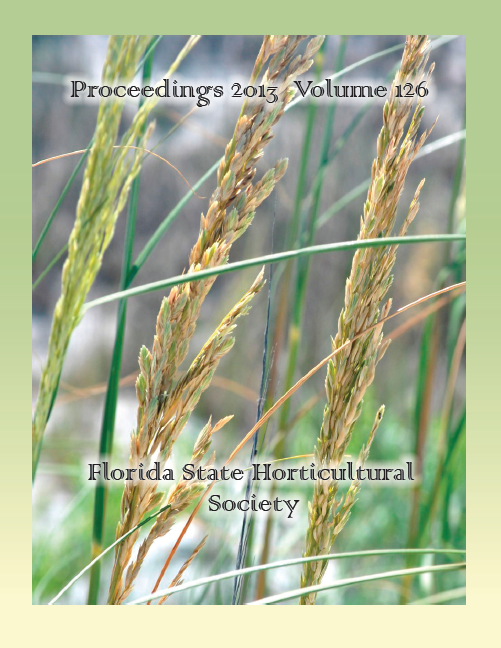Experimental Research Informs Control of Mexican Petunia (Ruellia simplex) in Natural Areas and Home-Gardens
Abstract
Mexican petunia (Ruellia simplex C. Wright), a common ornamental landscape plant, has invaded southeastern U.S. floodplain forests and is negatively impacting vegetation community structure and function. Control in invaded natural areas, coupled with control at the propagule source (home-gardens and landscapes), is recommended for management of this invasive species. We compiled results from recent Mexican petunia control studies to construct preliminary management recommendations. Mexican petunia can be controlled in both natural areas and home-gardens with 1 to 2 foliar glyphosate applications. Seasonal timing of glyphosate applications does not seem to impact effectiveness of Mexican petunia control, so we do not recommend specific timing of glyphosate application to home-gardeners. Seasonal timing
of glyphosate applications did, however, impact post-control native species richness in natural areas, so we recommend that natural area managers apply glyphosate in the fall for the greatest post-control regeneration of native species. Reinvasion and/or occurrence of novel invaders can be an issue in both home-gardens and natural areas; therefore we recommend that glyphosate treatments be followed by replanting with appropriate material in both situations.

